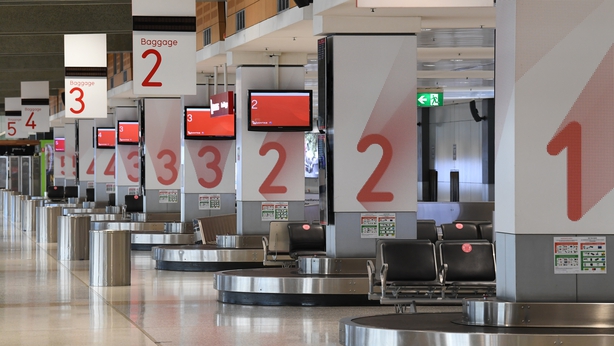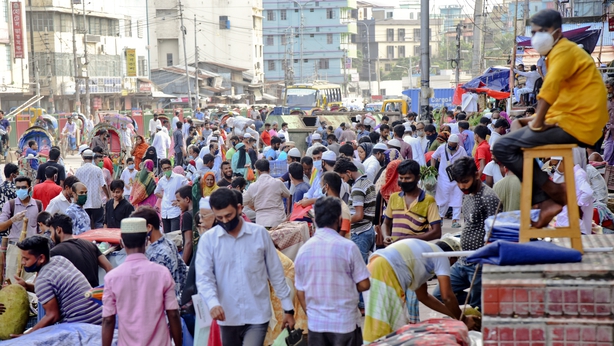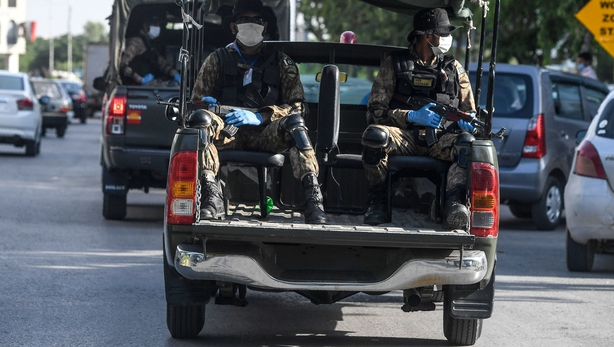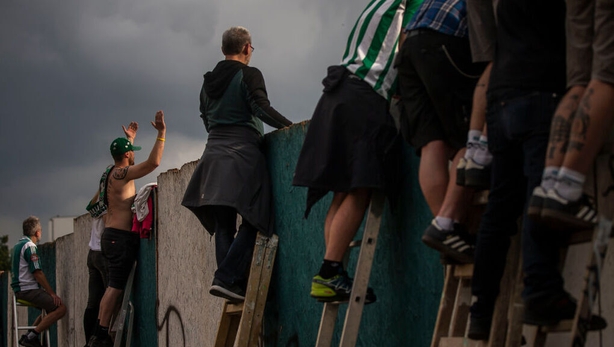Qantas Airways has said it had cancelled most international flights until late October after the Australian government indicated its border closure because of the coronavirus was likely to extend to 2021.
"We will still have some flights scheduled across the Tasman in the coming months with the expected travel bubble between Australia and New Zealand," the airline said in a statement, referring to the Tasman Sea between the countries.
"Should travel between Australia and other countries open up and demand return, we can add more flights back into our schedule," it added.
Australia is unlikely to reopen its border to international travellers until next year but will look to relax entry rules for students and other long-term visitors, Trade Minister Simon Birmingham yesterday.
It is in talks with New Zealand about forming a quarantine-free "travel bubble" given the low number of cases in both countries.
New Zealand has indicated September could be a realistic date for the resumption of regular flights between the nations.
Qantas this month announced plans to triple domestic capacity to 15% of normal levels by the end of the month as state border restrictions ease.

'Catastrophic': South Asia reels from virus surge
Early optimism that south Asia might have dodged the worst ravages of the coronavirus pandemic has disappeared as soaring infection rates turn the densely populated region into a global hot spot.
After several months trailing the US and western Europe, cases of Covid-19 are surging across South Asia, home to almost a quarter of the world's population, where the virus is wreaking havoc on fragile medical systems and underfunded health agencies are pushed to breaking point.
Overflowing hospitals from Kabul to Dhaka are turning away suspected virus patients, mortuaries are being overwhelmed as cemeteries and crematoria struggle to cope, and desperate families are searching for help for critically ill loved ones.
"The situation is catastrophic," Abdur Rob, a senior doctor at Bangladesh's Chittagong General Hospital, told AFP.
"Patients are dying in the ambulances on the roads as they shunt between hospitals looking for (intensive care) beds or hospital admission."
Read:
Latest coronavirus stories

Worldwide more than eight million people have been infected by Covid-19 and over 446,000 have died, with the virus accelerating across South Asia and Latin America.
Devastating scenarios are playing out as cash-strapped governments choose between enforcing lockdowns or watching low-income families slide deeper into poverty, often with no safety nets to catch them.
India is the fourth worst-hit country in the world with more than 354,000 confirmed cases, though limited testing means the true number is likely much higher.
The number of fatalities leapt by more than 2,000 to top 11,900 yesterday after Mumbai and New Delhi updated their figures.
The government won plaudits in late March for imposing one of the world's strictest lockdowns.
But millions of migrant workers were left jobless and, unable to get home, sometimes held in crowded facilities that increased the risk of transmission.
As the government steadily lifts restrictions, cases have surged.
In neighbouring Pakistan, which has recorded more than 160,000 cases and over 3,000 deaths, Prime Minister Imran Khan resisted a nationwide lockdown, saying the country could ill afford it.

Many there chose to ignore social distancing guidelines and provincial lockdowns were relaxed during last month's Eid al-Fitr holiday, helping fuel the current increase in cases.
"When Eid celebrations came, the public took the ease of the lockdown as a sign that the disease was all over.
"They swamped the markets, they went to funerals, there was no enforcement of the (social distancing measures)," said Samra Fakhar, a surgeon in the northwestern city of Peshawar.
Authorities have warned that Pakistan would likely see more than one million cases by July, and the World Health Organization has called for new lockdowns, a measure Mr Khan rejected.
In Pakistan's overwhelmed hospitals, doctors say national leaders wasted precious early months to brace for a potential onslaught.
Further complicating the crisis is limited testing which is skewing data lower.
Last week, burial figures released by nine state-run graveyards in the Bangladeshi capital Dhaka, as well as dozens of small graveyards in a neighbouring city, showed at least 1,600 additional deaths in April and May, a top Bengali news site reported.
Yet health ministry data show only 450 people died from Covid-19 in the two cities during the period.
Similar anecdotes are emerging in conflict-battered Afghanistan, which has only acknowledged more than 26,000 cases and 500 deaths - seemingly impossibly low numbers for a country that failed to enforce lockdowns amid ongoing fighting and where impoverished day labourers are unable to stay home.
"We have reports of increasing suspected deaths, people burying dead bodies at night," said Kabul governor Mohammad Yakub Haidary last week, adding that the Afghan capital was suspected of having more than a million infected people.
"There is a disaster coming."
China concern over hygiene standards in food markets
Meanwhile, low standards of hygiene in China's wholesale food markets and vulnerabilities in its food supply chain need to be urgently addressed after a new coronavirus outbreak in Beijing, the Central Commission for Discipline Inspection (CCDI), a leading body of the ruling Communist Party, said in a report published on its website.
The resurgence of Covid-19 in the country's capital over the past week, infecting more than 100 people and raising fears of wider contagion, has been linked to the city's massive Xinfadi food centre.
China's sprawling food markets have emerged as an ideal breeding ground for the coronavirus.
The first major cluster of infections was traced to the Huanan seafood market in Wuhan,where bats and other wild animals were believed to be on sale.
Czech Republic to drop mandatory face masks, reopen nightclubs
Czechs will no longer have to wear face masks as of 1 July, apart from in the capital Prague, the health minister has said, lifting a measure adopted to curb coronavirus infections.
Introduced on 19 March, the order to cover the mouth and nose led Czechs to make face masks at home amid a dire shortage in the EU member of 10.7 million people.
"The blanket duty to wear face masks will be abandoned on July 1, 2020 ... with the exception of regions with a worse epidemiological situation," Health Minister Adam Vojtech told reporters.
Masks will still be mandatory in shops and on public transport in Prague where city hall has been paralysed after a deputy mayor tested positive for Covid-19.
Masks will also be required in the northeastern Karvina district, where nearly 500 people with ties to the Darkov coal mine recently tested positive.
The Czech Republic has 10,176 confirmed Covid-19 cases of which 333 died.
The cap on public events will increase from 500 to 1,000 participants as of 22 June, Mr Vojtech said.
A maximum of 5,000 fans seated in five separate sectors, each comprising 1,000 people, will be allowed at football matches and similar events.
Attendance limits for swimming pools or zoos have been dropped along with social distancing rules for museums, galleries and castles from 22 June.
From 1 July, nightclubs can reopen and pubs and restaurants will be allowed to operate beyond 11pm.

